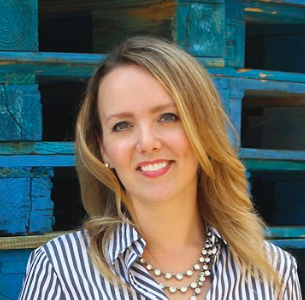
Giant Eagle Inc. is headquartered in Pittsburgh, Pennsylvania. Less than five hours away in the sprawling Midwest in Cincinnati, Ohio is The Kroger Co. headquarters. Both supermarket chains recently have made commitments to remove single-use plastics from business operations by 2025.
There are notable differences in size between the two companies, though. Giant Eagle’s revenue is a mere 7 percent of its relative neighbor’s, Kroger. This chain has more than 470 stores throughout western Pennsylvania, north central Ohio, northern West Virginia, Maryland and Indiana. Contrast that number with that of Kroger, which has more than 2,800 stores in 35 states.
In an industry where profit margins typically range from 1 to 3 percent, what is accelerating Giant Eagle’s giant push to eliminate cheap plastic bags?
Bottom-line and environmental numbers to consider
Digging into the numbers, grocery stores make money based on volume. Grocers rely upon customers to buy many items per shopping trip, so a store's profits will multiply. For example, if a store makes $0.25 on an item, a grocer can't do much with that. But if a customer purchases 20 items with an average profit of $0.25 per item, that adds up to $5.00 profit. Multiply shopping trips like that by at least a few hundred a day and you’re in business.
This, however, presents a twofold problem: the cost of convenience and the harmful waste it propagates.
The cost of convenience: Many shoppers have come to expect to be given a shopping bag upon purchasing an item. Yet even packaging can take a toll on a supermarket’s already slim margins. Plastic bags are considerably cheaper than paper bags, costing about a penny per bag. Paper bags cost about double that. So between bottom-line performance and customer demand, single-use plastic bags became the go-to tote to provide customers a convenient way to transport their grocery items.
The harmful waste single-use plastic bags propagate: The scale of the plastic bag pollution problem is overwhelming. Giant Eagle reported that Americans use 14 billion plastic shopping bags every year. Imagine if those 14 billion plastic bags were tied together, they would extend around the Earth’s equator 108 times. And while that plastic bag may cost the grocer only a penny, the cost those single-use bags are exponentially more, according to many environmental organizations including the Sierra Club.
So, beginning next month in Ohio, Giant Eagle stores in Cuyahoga County's Pittsburgh and Bexley (a suburb of Columbus) will no longer supply plastic bags. Then, the company will launch a broader effort to move away from other single-use plastics, including straws, single-serve fresh food containers and bottled beverages in order to be free of single-use plastics across the company's operations by 2025.
The pledge was partially motivated by Pennsylvania legislation passed earlier this year that put a one-year ban on plastic bags so that the environmental and economic impacts of such ordinances could be evaluated.
To encourage customers to use reusable bags, Giant Eagle has begun to offer one bonus perk per reusable bag up to 10 bags per transaction. And, as any savvy supermarket has begun to do, Giant Eagle will also sell reusable bags for 99 cents each.
Why the switch from plastic to reusable makes good business sense
Between operating within tight margins and setting goals to be a company that champions sustainability efforts, switching from distributing plastic bags to selling reusable bags makes solid business sense.
As more municipalities begin to ban plastic bags, companies that are early adopters stand to benefit most. Since 2007, when San Francisco became the first American city to pass a law banning single-use plastic bags, more than 200 municipalities have implemented similar rules. Now approximately 20 million Americans reside in an area with some form of disposable bag law. Also, more consumers are voting with their dollars and choosing to buy from companies whose missions align with their own.
In this regard, Giant Eagle’s recent sustainability announcement is small yet potentially giant. While the company has nowhere near the footprint Kroger does, the decision to act is monumental. By eliminating single-use plastics community by community and store by store, the planet could be saved from being clogged further by non-biodegradable plastics.
Giant Eagle’s sustainability pledge is helping to reshape its operations to better manage convenience and corporate social responsibility and in the end, enhance bottom-line results.
Image credit: Wiki Commons; Giant Eagle/Instagram;

Based in Michigan, Sarah is passionate about sustainability, storytelling and bringing to light sustainability principles that can be threaded into business strategies and communications. Formerly an editor for CSRwire and freelance writer for many organizations forwarding the principles of corporate social responsibility and circularity, she is excited to be a contributor to TriplePundit. Connect with Sarah on LinkedIn and Twitter.














